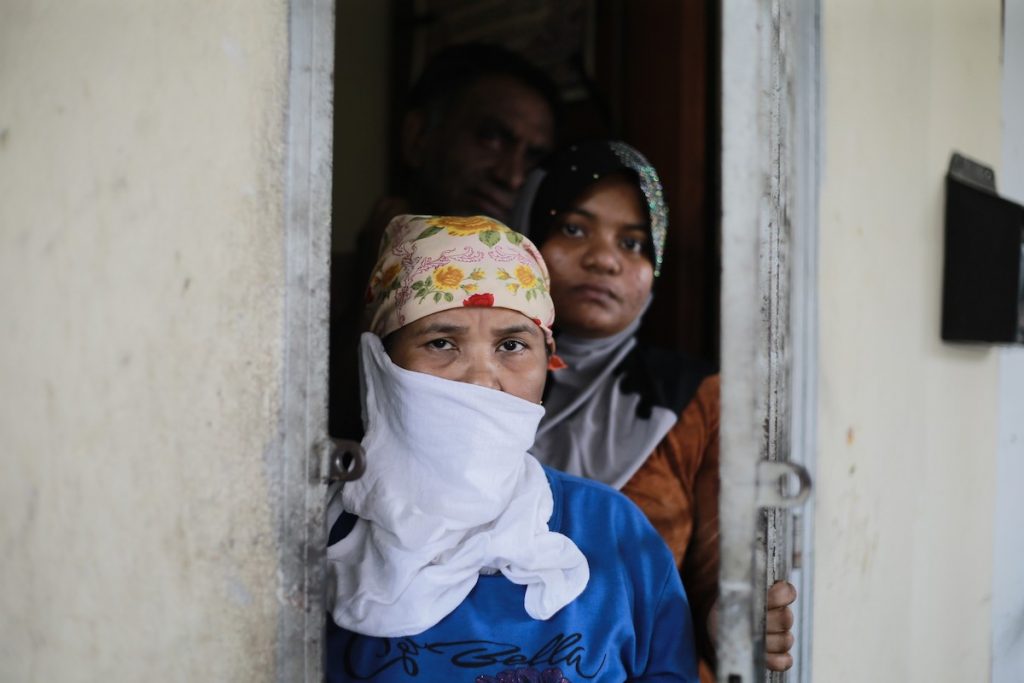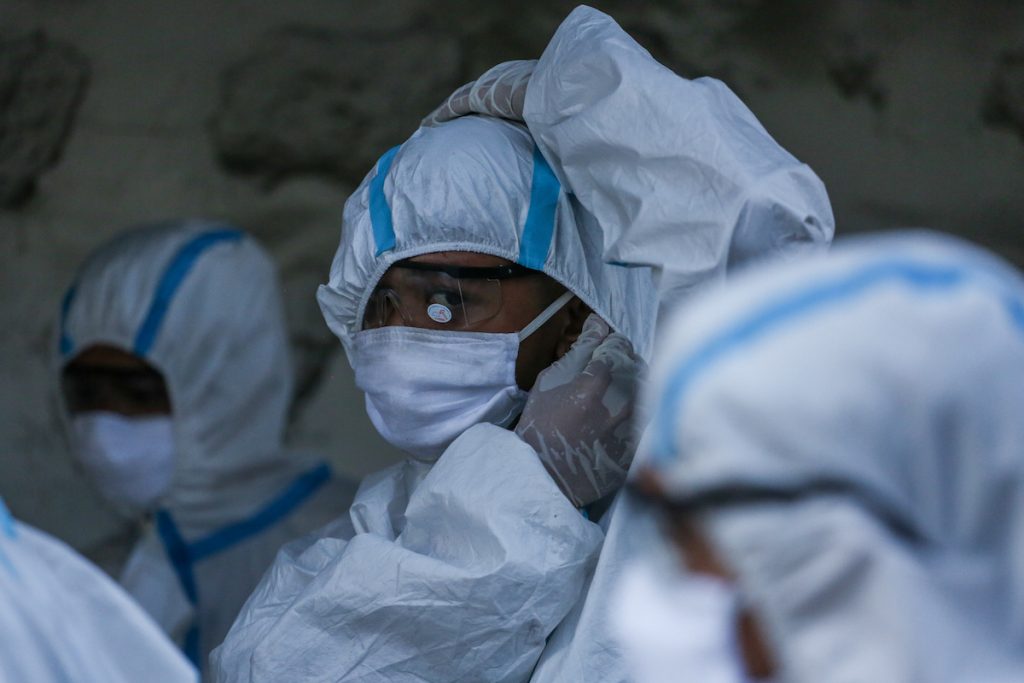
One of the eye-openers in our recently-held plenary assembly of the Catholic bishops’ conference was a zoom encounter of the bishops with the Dominican priest-scientist Father Nicanor Austriaco, who patiently explained to us how vaccines work, in layman’s language.
He has two doctorates, by the way, one in Molecular Biology, and another in Moral Theology, just the right combination of disciplines that we needed, to be enlightened about the need for COVID-19 vaccination program in our country and in the whole world.
Until that encounter, I thought it was the vaccine itself that was supposed to fight the virus. Hindi pala. Not the vaccine, but our own body. The vaccine merely activates the human body to produce the antibody needed in order to fight the virus, by allowing the body to identify the enemy. To do that, the scientists extract the spike protein from dead viruses — you know, those spikes that surround the SARS COV2 balls like little nail heads, or like the spikes around a rambutan fruit. They inject these dead parts of the virus into our bloodstream.
Don’t you find that very interesting? How, indeed, do you expect the body’s immune system to fight an enemy that it cannot recognize? Without vaccination, when the alien virus infects us, the body does not even know that it has been penetrated and that this intruder is already causing a lot of damage inside. It is unable to mobilize the army of soldiers that it needs to deploy in order to fight the invader, which the scientists call “pathogens.” In some instances, it may be too late by the time the immune system is able to recognize it and fight it.
When I was a little boy, I remember our family doctor telling my mother to allow her children to play outside and to be exposed to the elements so that we could build up a stronger immune system against germs, bacterias and viruses. During those times, there were already some over-protective mothers who would not even allow their children to play in open grounds or step on soil because they could get infected by harmful germs.
(Good thing my mother was not like that.) You know, those squeamish mothers who keep saying, “Anak, don’t touch the soil, it’s dirty, you might get sick.”
Our doctor gave a contrary opinion. He said, “Just teach them proper hygiene after playing, and take necessary precautions about more dangerous diseases like chicken pox, measles, rabies, polio.” I imagine how many thousands of soldiers we have in our immune system, ready for battle against the uninvited intruders that attack the human body in many different ways.
You would probably remember a homily that I gave several weeks ago, applying the concept of immunity to the spiritual life. Well, today’s Gospel brings us back to the topic of “spiritual immunity” from a different kind of contagion: the infection of the spirit.
I am inclined to believe that the evil spirits behave in a very similar way. And it makes sense why the Dominican priest-scientist I was telling you about felt the need to combine his scientific degree in molecular biology with a doctorate in moral theology.

We are spiritually as vulnerable to the intrusions of evil spirits, as our bodies are to the invasion of viruses that cause deadly diseases. Look, what started as an epidemic in one country has turned into a global pandemic in just a few weeks.
Not only has it adversely affected the health of those infected by it, especially the elderly and the immunocompromised, it has also crippled businesses and caused a melt down on the economies of many countries around the world, interrupted most human activities including our religious gatherings, and overwhelmed our health care systems.
I think we have much to learn from Jesus, the Exorcist, on how to deal with the intrusions of the evil one in our lives — whether on the personal, familial, communal or societal levels.
I read the reflection of the Vincentian theologian Father Danny Pilario and his interesting application of the same idea on the social ills that currently plague the Philippine society, including the politics of populism that feeds on collective resentment, the ideology of “ultimate solutions” like death penalty and extrajudicial killings, the spiritual disease that makes people gullible, incapable of distinguishing between fact and fake news, between truth and falsehood, and the paranoia of red-tagging.
In the town of Sasmuan in Pampanga, I used to attend what I thought was no different from the fertility dance of Obando. It is called KURALDAL and is traditionally observed during the town’s annual fiesta celebrations in honor of Santa Lucia. What I found most unique about this public ritual that may seem almost pagan to the modern eye were the parts in the dance where people shouted in unison some collective petitions like “Pwera Gera!” “Pwera Sakit!” “Pwera Gutom!” (Away with war! Away with disease! Away with hunger!)
I realize that the whole dance is practically a collective ritual of exorcism asking God to get rid of the evil spirits that invade our lives and our communities. Not only do people shout in unison; they also move in unison, following the same dance steps, and enter into a state of prayer that links them up spiritually with one another. They are like a whole army of antibodies being deployed to fight the unseen enemy; but first, they make sure they name the enemy.
In our Gospel today, it is the evil spirit that tries to name Jesus in order to have power over him. He says, “I know who you are!” But Jesus also knows how to counteract his ploy; he tells him to shut up and commands him to leave the man.
In another story of exorcism in Mark 5, we are told that Jesus challenged the intruding spirit to identify himself. The intruders apparently shouted, “Legion! There are many of us inside!” It is after naming them that he is able to expel them.

Let us go back to the vaccines now. Should we or should we not support the vaccination program? BUT OF COURSE, WE SHOULD! I think the tendency to be swayed towards an anti-vaccine thinking on the basis of fake news, conspiracy theories and anti-science rhetoric is also part of the strategy of the evil one, so that it can cause more damage in our lives.
Like Jesus, we should be intelligent enough to name our fears, our suspicions, biases and prejudices if we want to be able to exorcise our society from the attacks of the evil one. We have to learn the exorcism dance; we have to name the spiritual pathogens and invoke only the power of truth and the Spirit that we received at baptism, to liberate ourselves from these vicious and unwelcome intruders.
Homily of Bishop Pablo Virgilio David of Kalookan for the 4th Sunday in Ordinary Time, January 31, 2021, Mk 1:21-28
Source: Licas Philippines
0 Comments